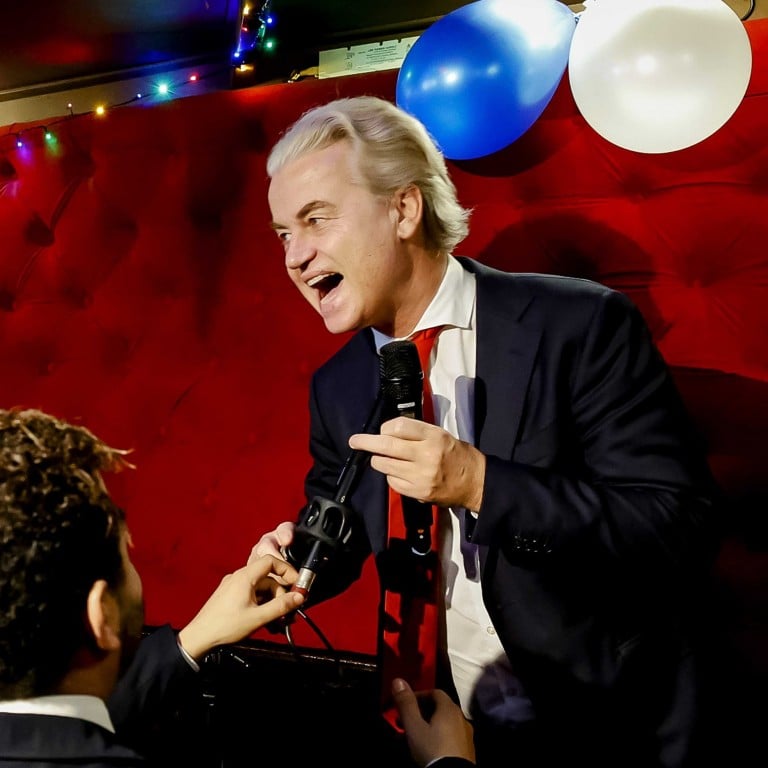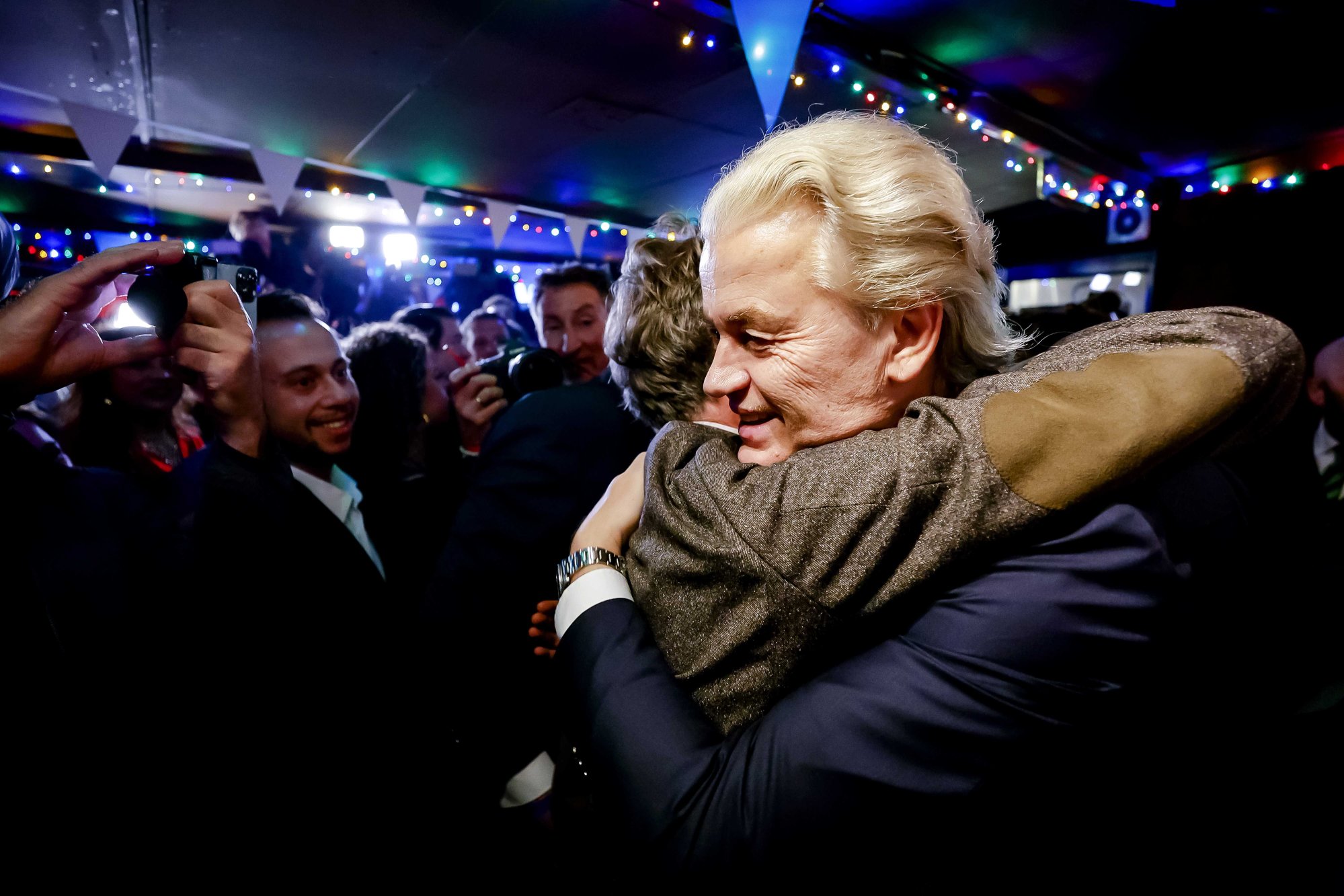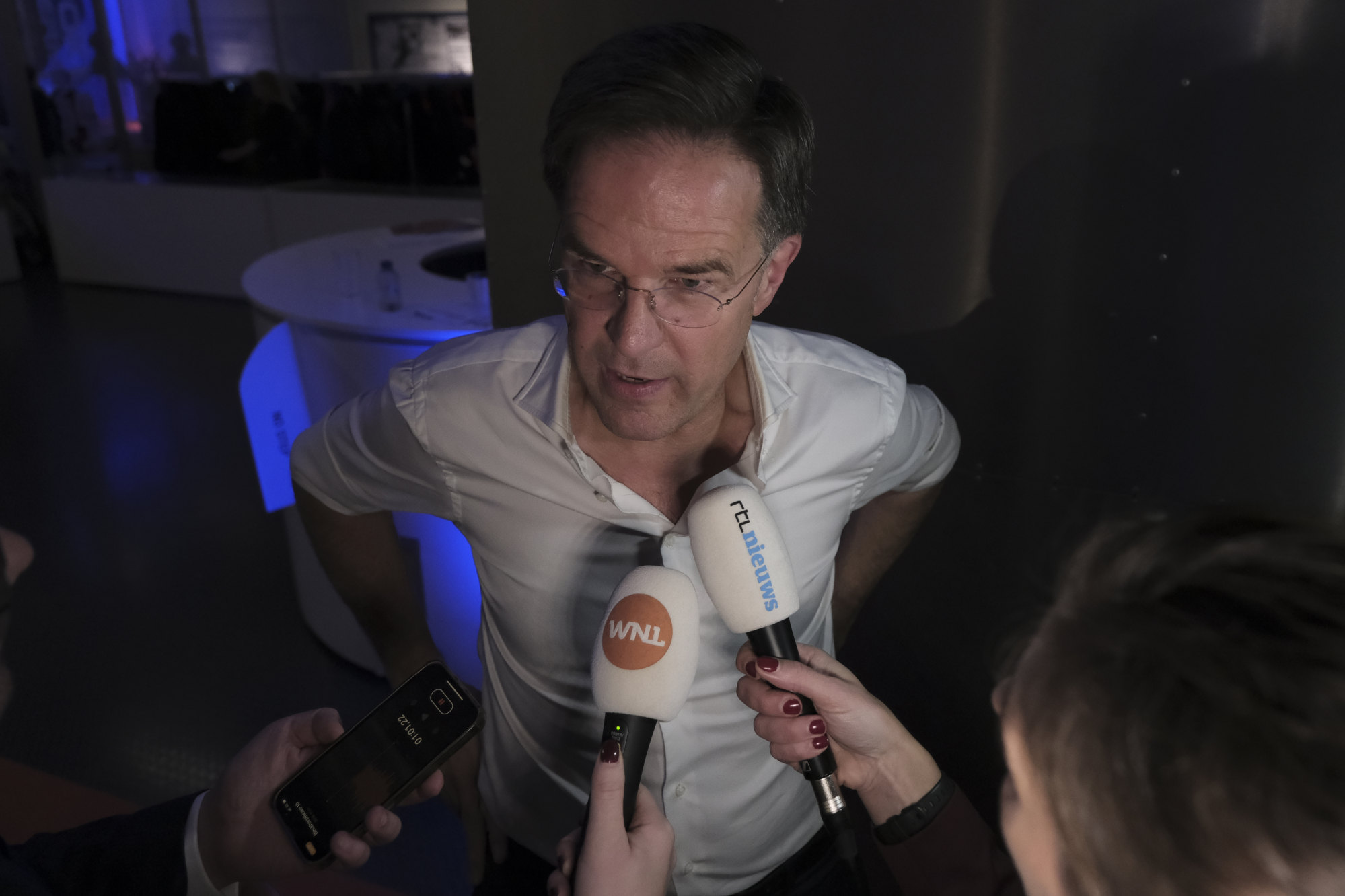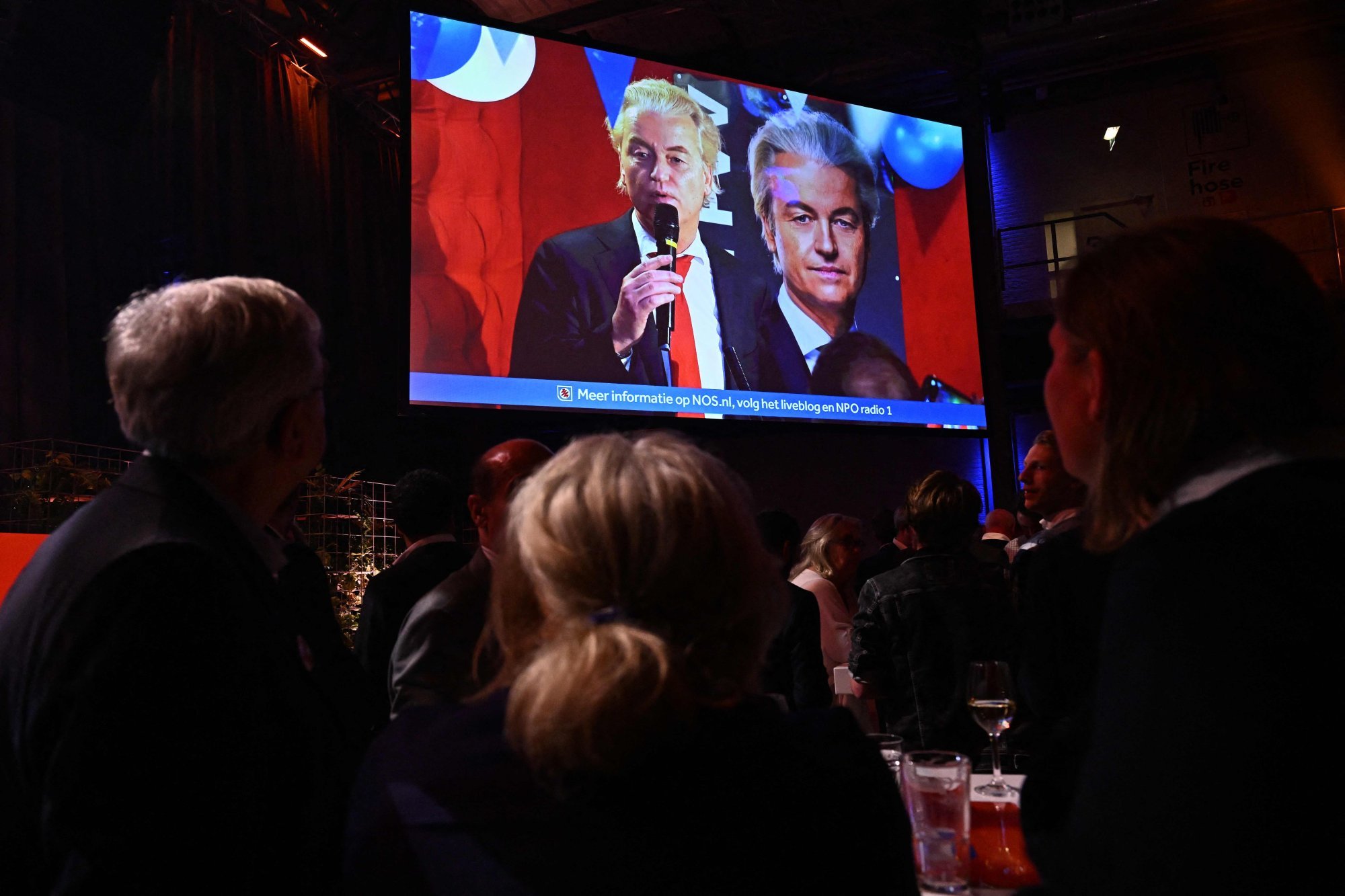
Netherlands far-right’s Geert Wilders seeks to form Dutch government after shock election win
- Victory for far-right, anti-Islam Geert Wilders will resound in Europe and around the world
- Beating all predictions, his Freedom Party won 37 seats out of 150
Beating all predictions, his Freedom Party (PVV) won 37 seats out of 150, well ahead of 25 for a joint Labour/Green ticket and 24 for the conservative People’s Party for Freedom and Democracy (VVD) of outgoing Prime Minister Mark Rutte.

“The Rutte era ends with a right-wing populist revolt that shakes (The Hague) to its foundations,” Dutch centre-right daily NRC said. A coalition of the Freedom Party, VVD, and the NSC party of centrist lawmaker Pieter Omtzigt would have 81 seats combined, making it the most obvious combination but one that is still likely to take months of difficult talks.
None of the parties Wilders could form a government with share his anti-EU ideas. “I am confident we can reach an agreement,” he said in his victory speech late on Wednesday. “We want to govern and … we will govern.”

“The Netherlands are not France,” French Finance Minister Bruno Le Maire quickly reacted, while acknowledging that the Dutch election showed “the fears that are emerging in Europe” over immigration and the economy and the need for governments to show to citizens that their policies are bearing fruit.
Last year, Italy formed its most right-wing government since World War Two after the election victory of Giorgia Meloni.
Wilders’ victory comes two months after the return to power of the equally anti-EU populist Robert Fico in Slovakia, who has pledged to halt military aid to Ukraine and cut immigration.
“The winds of change are here!,” Orban said.
“We will have to find ways to live up to the hopes of our voters, to put the Dutch back as No 1”, Wilders said.
After his victory, he said “the Netherlands will be returned to the Dutch, the asylum tsunami and migration will be curbed”.
Islamic and Moroccan organisations expressed concerns about Wilders’ victory. Muslims make up about 5 per cent of the population.
“The distress and fear are enormous,” Habib el Kaddouri, who heads an organisation representing Dutch Moroccans, told Dutch news agency ANP. “We are afraid that he will portray us as second-class citizens.”
All eyes will now turn to Wilders’ potential government partners who had expressed serious doubts about working with him during the campaign, but were now less outspoken after his win.
Wilders and his party have never been in government.
“We are available to govern,” NSC party’s Omtzigt said. “This is a difficult outcome. We will discuss on Thursday in what way we could best contribute.”

VVD leader Dilan Yesilgoz, who earlier this week said her party would not join a government led by Wilders, said it was now up to the winner to show he could get a majority.
“We are not in a position to take the lead,” she said.
Parties are set to meet each on their side on Thursday to discuss what to do next. On Friday, party leaders will meet to decide on an “explorer”, a political outsider who will hear from each party what possibilities they see and prefer in coalition talks.

